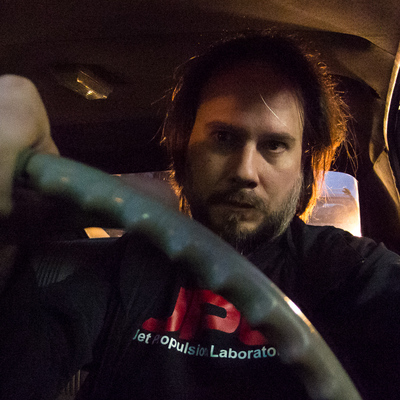The enforcement of copyright law is really simple.
If you were a kid who used Napster in the early 2000s to download the latest album by The Offspring or Destiny’s Child, because you couldn’t afford the CD, then you need to go to court! And potentially face criminal sanctions or punitive damages to the RIAA for each song you download, because you’re an evil pirate! You wouldn’t steal a car! Creators must be paid!
If you created educational videos on YouTube in the 2010s, and featured a video or audio clip, then even if it’s fair use, and even if it’s used to make a legitimate point, you’re getting demonetised. That’s assuming your videos don’t disappear or get shadow banned or your account isn’t shut entirely. Oh, and good luck finding your way through YouTube’s convoluted DMCA process! All creators are equal in deserving pay, but some are more equal than others!
And if you’re a corporation with a market capitalisation of US$1.5 trillion (Google/Alphabet) or US$2.3 billion (Microsoft), then you can freely use everyone’s intellectual property to train your generative AI bots. Suddenly creators don’t deserve to be paid a cent.
Apparently, an individual downloading a single file is like stealing a car. But a trillion-dollar corporation stealing every car is just good business.
@music@fedibb.ml @technology #technology #tech #economics #copyright #ArtificialIntelligence #capitalism #IntellectualProperty @music@lemmy.ml #law #legal #economics
@ajsadauskas @technology @music@fedibb.ml @music@lemmy.ml I don’t believe in copyright law anymore than I do in landlords. Information is free.
Without copyright law, innovation is stifled because nobody can afford to spend time creating.
i’ve thought about this quite a bit, and i’ve come to a similar conclusion. abolishing copyright wouldn’t do much good if we didn’t also guarantee everything one needs to live to everyone. of course, the artist often doesn’t make enough to live on anyway, but making sure that one’s needs are taken care of would free one from the obligation of having a time-consuming job, and free up time for things one wants to do, like create art. i think abolishing copyright is an inherently leftist cause because of all the other issues that are intertwined with it, like paywalls and earning a living
The problem is that without copyright all a big company has to do is steal the work of smaller unknown artists and profit from it big time. The smaller artist then has zero recourse to get any money because their avenue for profit is ruined. Copyright allows them to sue the person who stole their work and get the profits from that.
hence the other issues intertwined with it. if big corpos are going to do that, we must abolish big corpos
What do you define as a big corporation? And why exactly should we abolish them?
that’s just my leftie side talking. i’m not inherently opposed to the idea of businesses, since money as a unit of exchange will exist for as long as there is an economic system, but for-profit businesses should be small and relegated to a secondary role in life. there’s a lot of debate around what should be the way that we all get food, water, a home, medical care, etc. (the primary split is people who believe in top-down governmental assistance vs bottom-up peer support networks) but every leftist agrees that the corporations that control our lives should be stamped out.
i guess a large corporation can be defined roughly as a business where the owners do not run it directly. an important part of leftist thought is the divisions between the working class (or the “proletariat” if you want to get fancy) and the owning class (or the “bourgeoisie”). the working class does all the work, and the owning class merely takes the value that the working class produces. a business that’s large enough to the point where the owners are able to just leave it running and leech money off of it without doing any real work is a large corporation in my book.
when businesses get that size, they tend to forget their mission and instead focus on only profit. and they’ll do anything to get more profit, like:
- fuck the environment
- expose their workers to hazardous conditions to cut corners
- steal the creative work of individuals and pass it off as their own
one needs only to look at the Gilded Age for proof of my point. nothing has fundamentally changed between then and now, except that the government is doing things (and even then, not enough).
a lot of problems we face as a society today are the results of big corporations being big corporations. inflation? shareholders being greedy. climate change? corporations forgoing environment-protecting measures because they would cost something. cost of living crisis? you guessed it — corporations trying to squeeze every bit of money out of the working class. and corporations will keep doing this over and over again. as long as they exist, they will dig the hole deeper and deeper because there might be gold at the bottom.
unfortunately, nobody can agree on the best way to hurt big corporations, but fortunately there are a lot of options. they range from electing socialists to office so they can exert governmental control over big corporations, to striking, to outright class warfare. unsurprisingly the practicality of all the different options is mixed, and in any case we are nowhere near where we need to be to put any of them into action.
@atomicfurball 😂 😆 😂
@ajsadauskas @technology @music@fedibb.ml @music@lemmy.ml
#Copyright does not protect the concept and themes of artistic presentation. So training autocomplete tools like #ChatGPT or generative art tools along the lines of #StabilityAI on huge amounts of copyrighted material available on the web doesn’t seem to trespass on the rights actually created by copyright law. That is, neither the trained model parameters nor the output qualifies as a infringing copy.
The fact that big corporations have heated the rhetoric with even small-scale copyright infringement being characterized as if it were an existential threat rather than free marketing perhaps misleads people to think copyright grants the owner total control of the future of their creations. But law is about statutes and precedents, not feelings, which is why big corporations aren’t likely to train their models on billions of copyrighted works if there was a credible risk of paying statutory damages on a per-work basis.
If there is a moral right to the “something” that has been gifted to these models by their training, it has not been well described, let alone recognized in law as property of the creators. How is this “something” which an AI model steals supposed to be distinguished from the piecewise appreciation for the art as summed over all human viewers?
So perhaps the real problem is the moral outrage created by the corporations who for decades equate copyright infringement with being ambushed by a gang of seagoing rapists, kidnappers, killers, and robbers (pirates). Towards that end, Germany is discussing adding copyright infringement as a form of “digital violence” making the analogy more exact.
yeah, as others have already said, this isn’t how copyright law works: it’s how law in general works.
@ajsadauskas @technology @music@fedibb.ml @music@lemmy.ml i have the feeling that in using the platforms offered by these companies you have given them permission to use your work.
@ajsadauskas @technology @music@fedibb.ml @music@lemmy.ml If corporations couldn’t get away with doing things that would get an individual fined or arrested, how would they maintain their competitive edge? Profits above everything, baby!
@ajsadauskas @technology @music yeah, sounds about right—see also the comparisons of e.g. wage theft vs shoplifting for what strikes me as a somewhat similar example of this kind of disparity
@ajsadauskas @technology @music@fedibb.ml @music@lemmy.ml and that’s how America works; The bigger you are, the smaller your crimes.
@ajsadauskas @technology @music@lemmy.ml @music@fedibb.ml And now you understand capitalism.
@ajsadauskas @technology @music@lemmy.ml @music@fedibb.ml
Some might notice an analogy in which if you kill a single man, you’re a murderer; kill millions and you’re a politician.
That may have been the quote I was thinking of. I was thinking Josef Stalin had said something similar but it turns out even that’s uncertain.
are you an actual phd and is that actually you in your profile
@downdaemon Yes…
@ajsadauskas @technology @music@fedibb.ml @music@lemmy.ml Sometimes I don’t have to wonder why giving up on pursuing any of my creative talents seems like the depressingly reasonable thing to do.
@ajsadauskas @technology @music@fedibb.ml @music@lemmy.ml I don’t think you understand the problem.
You see, companies have long struggled due to piracy.
They have to come up with solutions to piracy, and implement them. That is hard work and doesn’t do a thing against piracy, and heck it even didn’t lower their revenue, because it was proven that those that pirate stuff, also buy stuff.
Therefore, it only makes sense that if you have a lot of money, you don’t have to pay…Wait, I lost my train of thought.
:hides her music library of 197K songs:
:hides her book library containing the entirety of Project Gutenberg, every StackExchange site, Wikipedia & Books & Wiktionary, 300K textbooks, and archives of Popular Mechanics dating to 1907, amongst other periodicals, plus tens of thousands of comics and graphic novels from three major publishers:
:points fingers at eyes, then points at the media industries: Come at me brosephs.
i’ve been making a bugout usb with similar, do you have any tips?
@downdaemon I’ve recently exported a goodly chunk of it to a 1TB μSD card. Archive.org is a great place to start; that’s where the Popular Mechanics, Encyclopaedia Brittanica, and many of the other publications I’ve collected (e.g. MacAddict) were sourced. Gutenberg via one of their rsync mirrors.
I’ve built a tag-based—non-hierarchical—primary storage system from several arrays in a redundant arrangement totalling a hair over 50TB, but that is not at all portable. μSD is “go”.
@ajsadauskas @technology @music@lemmy.ml @music@fedibb.ml
one death is a tragedy a million is a statistic
@ajsadauskas @technology @music@fedibb.ml @music@lemmy.ml “Kill one man, and you are a murderer. Kill millions of men, and you are a conqueror.” Jean Rostand
@opendna @ajsadauskas @technology @music@fedibb.ml @music@lemmy.ml
And if you kill only a million, but they are your own subjects, you are only a Republican President of the US facing a major epidemic. 😜
@ajsadauskas @technology @music@fedibb.ml @music@lemmy.ml Except (correct me if I’m wrong here) this sounds like a call for expanding copyright – but it’s *still* not “stealing a car.” It never was stealing a car, and making the copyright maximalist argument feels as wrong now as then. Training a neural net isn’t stealing (yet), corps like MSFT /Alphabet will be able to weather any changes to IP law, but imo this rhetoric is going to hurt the legions of small artists discovering and working with this new medium.
@emoryr @technology @music@fedibb.ml @music@lemmy.ml It’s more of a cynical tongue-in-cheek take. For the record, I totally agree that breaching copyright is not the same as stealing a car.
“Creators must be paid” is a recurring argument for maintaining copyrights as a system.
But how much it matters seems to vary widely, depending on whether it’s a 16-year-old kid using Napster, or a multi-trillion-dollar multinational that benefits from creators not being paid for their work.
@ajsadauskas @technology @music@fedibb.ml @music@lemmy.ml Oh for sure. I just worry that the nearly-universal backlash against generative AI from academia/lefty/artists/policy wonky people (my people!) grounded in well-intended anti-corporate/consumer protection sentiment is carrying water for the same old copyright maximalist corporations. IMO, down that way is costly litigation, dragging artists in to prove their own workflows, a further erosion of fair use and the final death blow of de minimis…



















